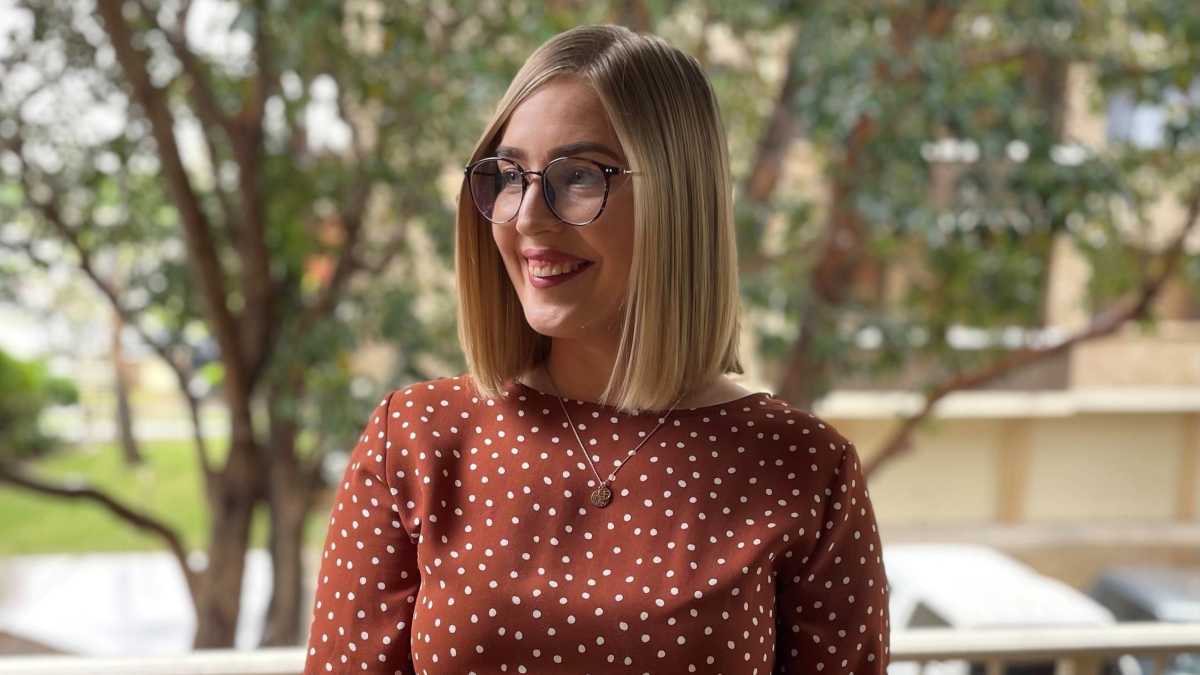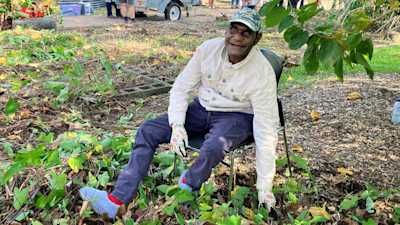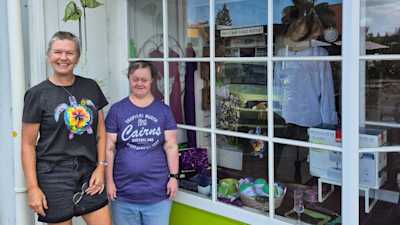In the lead up to International Day of People with Disability (IDPwD), DAWN Co-Chair Emily Reaper shares her experience living with an invisible disability and how organisations can support inclusion at work.

Image: Emily Reaper has short blonde hair and is wearing a brown dress with white spots and glasses.
As a person living with an invisible disability, I have had the opportunity to see the world from two perspectives. Eleven years ago, I was diagnosed with Myalgic Encephalomyelitis/Chronic Fatigue Syndrome (ME/CFS). I spent half that time hiding a large part of who I am at work because people couldn’t always ‘see’ my disability, and I didn’t feel safe to share it.
The downside to this is that I was never truly myself in any workplace. I pushed myself outside my limits rather than asking for help, which meant I could not work to the best of my abilities. It wasn’t until my ME/CFS got worse that I was put in a position I never thought I would be in—one without a choice. I had to disclose my disability. When interviewing for jobs, I knew that if I didn’t ask for workplace adjustments, I wouldn’t be able to return to the workforce. Sharing this information was one of the most daunting things I have ever done. I was unsuccessful at interview after interview. I was asked, “Are you sure you can do this work?”
Then, I interviewed at Life Without Barriers. The moment I walked through the doors, I knew Life Without Barriers was different. During the interview, I shared I lived with ME/CFS, that it wouldn’t impact my ability to do my job, and that I was ready for employment after almost a year out of the workforce. The response I received? “Of course. You wouldn’t be here if you weren’t.” I walked away knowing I would be valued for my whole self, not just the parts I chose to show.
Although the experience was positive, I stopped short of ticking the ‘disability box’ on the onboarding forms. My manager knew, and I didn’t need any adjustments (then), so why should I?
As I later learned, ticking that box goes well beyond me and my needs; it gives the organisation the power and push to make changes that support all employees, but especially those living with a disability. This is increasingly important for the 4.4 million Australians living with a disability, those of which 90% live with an invisible disability like me.
Culture and values are everything in this space. Without that, you’ll find it increasingly difficult to make your organisation a safe place for all employees, especially those with disability. One of the best ways we have done this at Life Without Barriers is through our disability employee network, Disability Accessibility Wellbeing Network (DAWN). DAWN serves as a network and resource for employees with disability and their allies. Our purpose is to support full participation at work for employees with disability.
Having a disability employee network ensures we slowly eliminate benevolence bias, which occurs when individuals or organisations assume they know what a person with disability needs rather than asking it direct. Benevolence bias is difficult for many people to understand because it generally comes from a good place – someone thinking they are ‘helping’ someone who has a disability without being asked, or someone doing a ‘good deed’ when their actions are hindering and sometimes endangering a person with disability.
I would love to see more organisations appoint young people with disability to their boards to provide advice and direction, specifically those working in the community services sector. We know people with disability have knowledge to share, and we know younger generations are enthusiastic in wanting to see and create change, so give them a voice and a platform.
Here’s the good bit. In the space of five years, I went from someone who never mentioned they had a disability at work, to someone so proud of who I am. I now sit as the Co-Chair of the DAWN Committee and tick that box every opportunity I get. I attribute this to the way I have been supported in the five years I’ve worked here and how I have seen our organisation work continuously at doing better.


